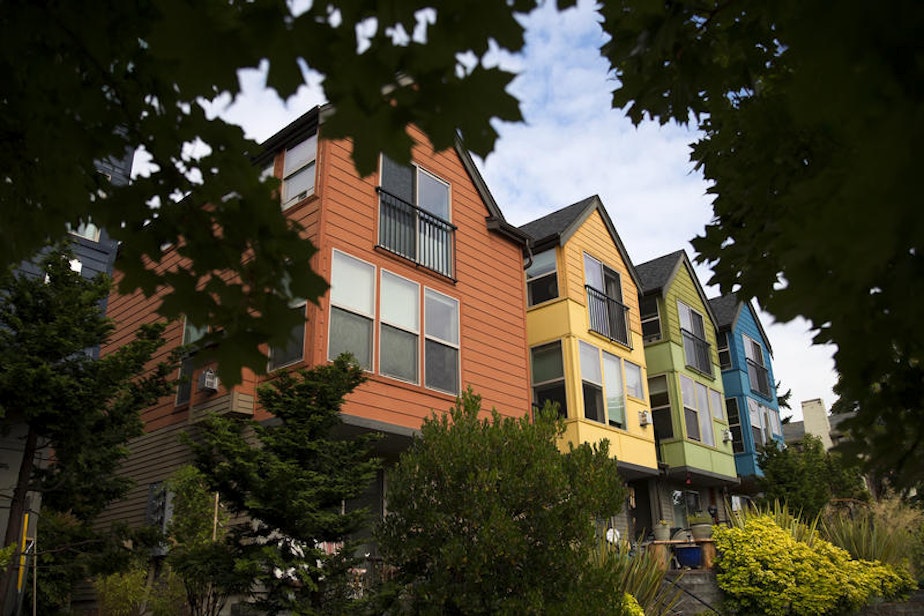It might be a good time to buy a house in Seattle, economist says

Kim Malcolm talks with Redfin chief economist Daryl Fairweather about how Amazon's big plans will affect Seattle's housing market.
Fairweather, who was formerly a chief economist at Amazon, says that with the opening of two new headquarters in New York and Virginia, that will slow the housing market in the Seattle area.
For people in the Seattle market right now, what do you tell them? Buy, sell, or wait?
That’s a tricky question. If you currently own a home, and you’re deciding whether to sell now or sell later, you’re kind of in a pickle. Right now the housing market has already slowed and we’re not seeing as much interest as we saw at the beginning of the year.
Some people are delaying listing for the spring thinking that’s when the buyer demand will come back. But with this Amazon HQ2 announcement, there might not be as much buyer demand as there was in past years.
How else do you think Amazon opening these two new headquarters could impact the market here in Seattle?
So in the past few years, 2016-2017, we saw a lot of migration to Seattle and a lot of that was caused by Amazon. They were hiring a lot of people. And although they are not going to stop hiring, they’re not going to hire at the same rapid rate that they have in the past years. We think that’s going to slow the housing market.
One factor is that there won’t be as many people moving into Seattle, but there may be people leaving Seattle. We estimated that if 1 in 20 Amazon employees were to list their home that would be 100 additional listings in Seattle. There are about 1000 listings per month in Seattle right now, so that’s a 10% increase, so that could result in much more inventory on the market. That’s good news if you’re a buyer. It will turn into a buyer’s market, potentially.
So you think we’re heading into a buyer’s market?
I think we’re already heading into a buyer’s market, the way that the Seattle market has slowed, and the Amazon HQ2 effect will make that even more true.
Amazon is still here in Seattle. It’s not leaving, in fact, it’s still growing here. There’s more than 8,000 open positions at the Seattle headquarters for Amazon. So given that, why should we expect Seattle, in the long-term, to have this softer buyer’s market?
There’s still 8,000 open positions, but that’s not as many as there were in the past. I think Amazon in Seattle has about 40,000 employees. They’re going to grow HQ2 to 25,000 employees in D.C. and 25,000 in New York, so the rate of growth is going to be a lot faster in those new locations than it is here. That’s the mental model that we’re working with, that there’s going to be potentially fewer migrants per year to Seattle because there won’t be as many Amazon hires, and we could see some out-migration with Amazon current employees doing internal transfers to these other locations.
Now, of course, you work for Redfin and your company is interested in selling more homes. So what you’re telling us today, should we take this with a grain of salt?
Actually, I feel like we’re trying to be really honest with our clients, especially our sell-side clients, that they may not get the same prices that they were able to get earlier in the year and in 2017. But it really is a different market now than it was earlier in the year and at Redfin we want to be perfectly upfront with our sellers so they can get the best possible offer in this market.
Note: Other economists aren't so sure that Amazon's plans will have much an impact on the housing market. Matthew Gardner, chief economist with Windemere Real Estate says the impact will be minimal. He says a slowdown of demand from Amazon employees will be back-filled by other companies —like Google and Facebook — which are both growing their workforce's in the Puget Sound region.
To listen to the interview, click the play button above.





